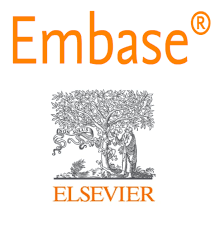Association Between Maternal Vitamin D Deficiency and Low Birth Weight Neonates
Keywords:
Vitamin D, Low Birth Weight, Maternal Deficiency, Neonatal Health, Cord Blood.Abstract
Background: Vitamin D is essential for calcium homeostasis, fetal skeletal development, and immune modulation during pregnancy. Deficiency in maternal vitamin D is increasingly associated with adverse perinatal outcomes, notably low birth weight (LBW). This study investigates the relationship between maternal and cord blood vitamin D levels and neonatal birth weight among term pregnancies. Methods: This cross-sectional observational study was carried out at Gauhati Medical College and Hospital between March 2024 and March 2025. A total of 140 term pregnant women were enrolled and divided into two groups: 70 cases (neonates <2.5 kg) and 70 controls (neonates ≥2.5 kg). Maternal and umbilical cord blood samples were analyzed for 25-hydroxyvitamin D using enzyme immunoassay. Statistical analyses were performed using SPSS version 26. Results: Among 140 term pregnant women, 70 delivered low birth weight (LBW) neonates (<2.5 kg) and 70 delivered normal birth weight neonates (≥2.5 kg). The mean maternal serum vitamin D3 level was significantly lower in the LBW group (25.53 ± 12.34 ng/mL) compared to controls (34.13 ± 15.84 ng/mL, p < 0.0001). Vitamin D deficiency (<20 ng/mL) was more prevalent among mothers of LBW neonates (41.4%) versus controls (27.1%, p = 0.001). Similarly, foetal cord blood vitamin D3 deficiency was significantly higher in the LBW group (77.1%) compared to controls (41.4%, p = 0.003). Maternal age and parity showed no significant difference between the groups. Conclusion: The study demonstrates a clear association between maternal vitamin D deficiency and low birth weight in term neonates. Regular screening and correction of vitamin D deficiency in pregnant women may play a crucial role in improving neonatal outcomes.
.png)









